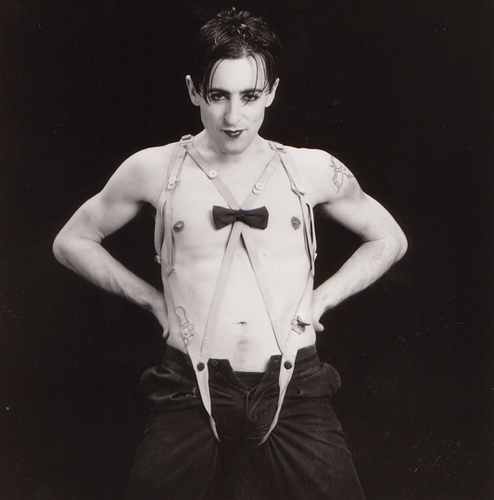
In general, the MC (master of ceremonies) is the host of the show and acts as a guide for the audience, often providing commentary or introducing the various acts. There is no one answer to this question as it can vary depending on the production and interpretation of cabaret. The Emcee represents the city’s glamour and danger, as well as its wildness whereas Gabel appears to choose him as a Nazi in this new adaptation, rather than a concentration camp. The Nazis exploited this opportunity by using the Emcee as a symbol of the city’s decadence and debauchery. The Emcee: A Symbol Of Berlin’s Glamour And Dangeĭuring the 1920s, Berlin was a city on the rise with a vibrant nightlife and a new sense of sexual freedom. I love and hate all words associated with genderqueer, androgyne, FTM, polygender, transsexual, and everything else. I do not believe the cisgender community is prepared for someone like me. Brian Molko, who claims to be both a man and a woman, says he stitched his life together everyday. I was ultimately saved by the Emcee, as well as by some other components. The transition from being a woman to a woman felt pointless there was no reason for me to abandon the safety of womanhood for something I would never do. I had never seen anything like it before, and I loved it so much that I was compelled to share it with everyone. At the age of 17, I was identifying as a gay trans man – a label that was still not exactly right at the time, but it was close enough. The subject of genderqueerness and cabaret. Emcee, one of the show’s main characters, is portrayed by Paige Fraser.īecoming an Emcee: This is the key to becoming an Emcee. Can The Emcee In Cabaret Be A Woman?Ī twist was added to the first production of this classic, celebrated play with a long history on Broadway and in London, where it has even made the jump to film. While the character of the MC is not the focus of the musical, he is an important part of the story and provides a unique perspective on the events that unfold. His flamboyant personality and campy behavior are a contrast to the dark and serious tone of the musical as a whole. He provides the audience with a glimpse into the underground world of homosexuality in Berlin during the early 1930s.

The character of the MC is one of the most important aspects of the musical Cabaret. However, the lyrics can be interpreted to be about how the MC is not interested in straight men and only wants to dance with other gay men. For example, in the song “Mein Herr”, the MC sings about how he is “not interested in men” and only wants to dance with women. While the character of the MC is not explicitly stated to be gay in the musical, it is heavily implied through his mannerisms and the subtext of the lyrics of his songs.

He is a flamboyant and campy character who provides comic relief and commentary throughout the musical.

The main character, the Master of Ceremonies (MC), is a gay man who is the emcee of the Kit Kat Klub. Norris” and “Goodbye to Berlin”, about the nightlife at the Kit Kat Klub in Berlin during the early 1930s. Cabaret is a musical with a book by Christopher Isherwood and music by John Kander, based on Isherwood’s short stories “The Last of Mr.


 0 kommentar(er)
0 kommentar(er)
